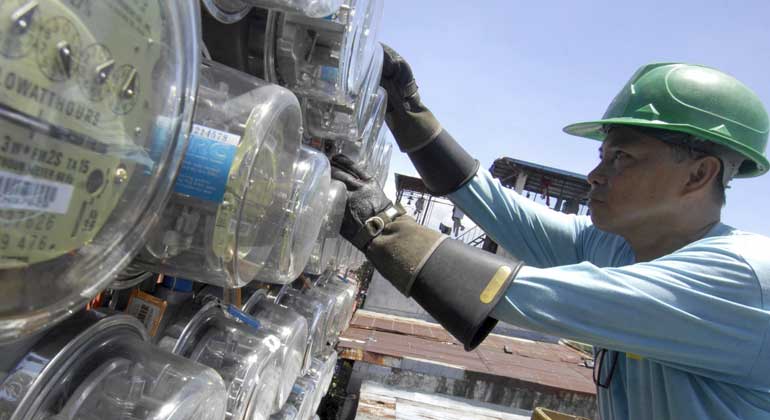
More power consumers seen joining RCOA by 2021
By Adam J. Ang – October 12, 2020 | 7:50 pm
from Business World

THE Energy Regulatory Commission (ERC) said it is targeting more participation next year in a scheme allowing consumers to select a preferred electricity provider.
The commission is seeking to fully implement the retail competition and open access (RCOA) scheme in the next three years by introducing more contestable customers in batches.
It proposed in a draft resolution that consumers with 500 to 749 kilowatts (kW) of average monthly peak usage will be allowed to transfer to a different power provider starting Feb. 26, 2021, while those with 100 kW to 499 kW of consumption can also do the same starting Jan. 26, 2022 and electricity end-users with 10 kW to 99 kW starting Jan. 26, 2023.
At present, only power customers with 750kW to 1MW of usage get to choose their power providers on a “voluntary basis” since the ERC resumed licensing retail electricity suppliers this year.
The implementation of the RCOA scheme was blocked by the Supreme Court in 2017 because it was being enforced mandatorily for large electricity end-users.
“The benefits of the RCOA scheme will soon come to fruition despite the temporary setback that came up against its implementation,” ERC Chairperson Agnes VST Devanadera said in a statement.
Last month, the commission in an advisory told distribution utilities to immediately process within 20 days the requests of their customers opting to switch to another power provider.
There was a slight uptick in the number of customers in the contestable retail electricity market in the second quarter, though they contracted less electricity supply during the period due to the impact of the coronavirus pandemic, according to an ERC report in August.
The weighted average price on the market fell to P3.95 per kilowatt-hour (kWh) in June and P3.97/kWh in May from P4.12/kWh in April.
“The envisioned competition in the retail level of the supply sector will soon be a reality and the consuming public will be the beneficiaries of the RCOA as they can opt to choose the electricity provider that offers the most competitive price,” Ms. Devanadera said.
At the end of June, there were 2,089 registered customers with contestability certificates, 70% of which have entered into retail supply contracts, while the rest are still powered by their respective distribution utilities.



